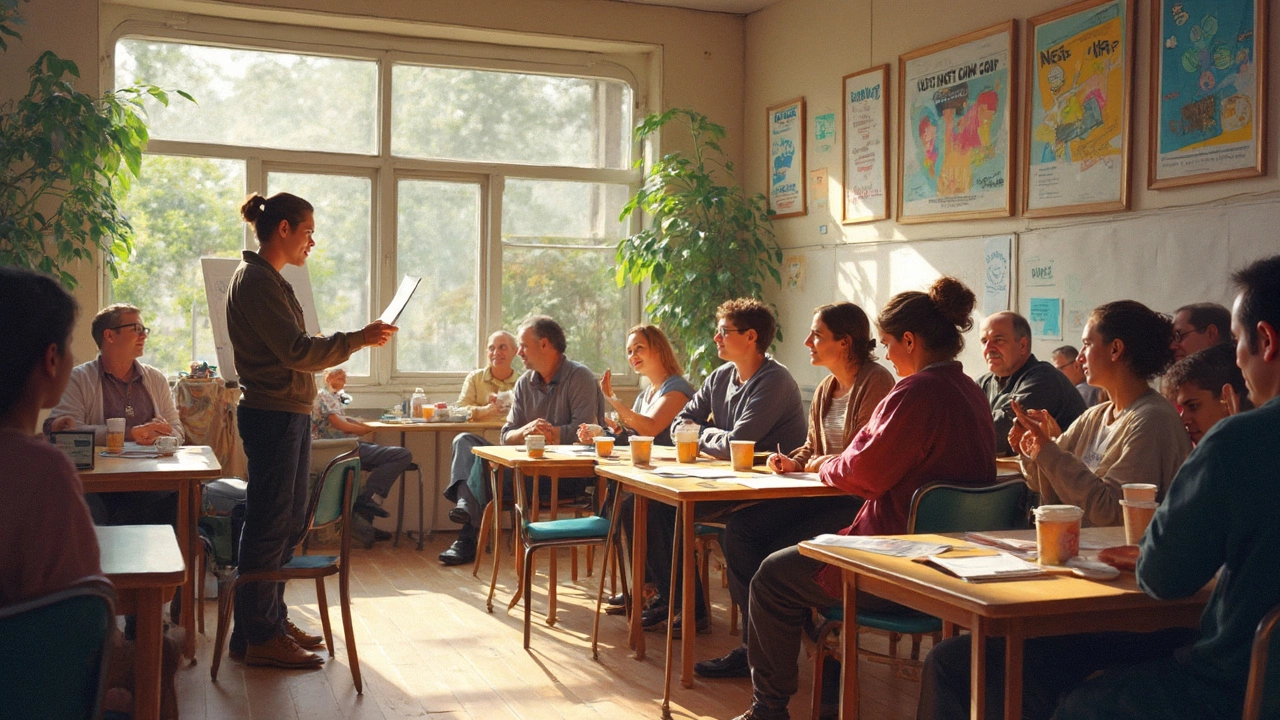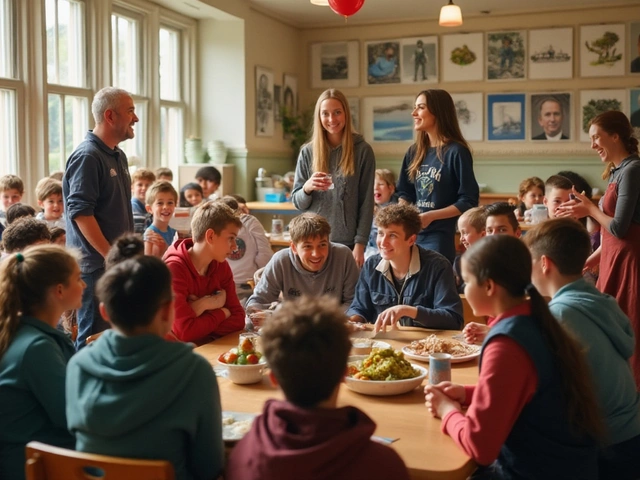Community Roles: How to Serve, Connect, and Make a Difference
Ever wondered what ‘community role’ really means? It’s simply any activity that helps people around you—whether you’re handing out flyers, teaching a kid’s soccer team, or organizing a food drive. At Holy Family Catholic Church in Patchway we see dozens of these roles every week, and you don’t need a title or a big budget to join in.
What is a Community Role?
A community role is any position, task, or responsibility that improves life for neighbors. It can be formal, like being a youth group leader, or informal, like lending a hand to an elderly neighbour. The key is intent: you’re acting to solve a need and build relationships. When you sign up for a role, you also gain new skills—communication, planning, and empathy—that help in work and family life.
Our church’s outreach programs illustrate this well. One volunteer coordinates a weekly soup kitchen, another runs a car‑pool for seniors, and a third helps run a after‑school club for kids. Each role tackles a different problem, but all share the same goal: stronger, healthier community.
Ways to Get Involved Today
Ready to jump in? Start small. Talk to the parish office and ask about current needs. They often have a list of tasks ranging from greeting visitors at Mass to packing care packages for the homeless. Pick something that fits your schedule and interests. If you love kids, join our "Essential Clubs Every Kid Should Try" program. If you’re handy, help set up chairs for events or maintain the garden.
Another easy entry point is community outreach. This isn’t just handing out flyers; it’s listening to people where they are and offering real help. For example, the "Primary Aims of Community Outreach Programs" post shows how you can map local needs, partner with other groups, and measure impact. Use those steps: identify a need, design a simple solution, involve others, and check results.
Volunteering also brings personal benefits. It boosts mood, builds confidence, and connects you with like‑minded folks. The "Is Volunteering Worth the Time?" article outlines studies that link regular service with lower stress and a stronger sense of purpose. Even a few hours a month can make a noticeable difference in your wellbeing.
If you’re looking for a bigger commitment, consider leading a parish ministry. Leadership roles need people who can organize meetings, keep finances straight, and inspire volunteers. Our "Five Steps of Community Engagement" guide breaks down the process into clear actions: listen, plan, act, review, and celebrate. Follow those steps and you’ll keep projects moving forward.
Don’t forget the power of collaboration. Partnering with local schools, charities, or businesses expands resources and reach. The "Big 6 Youth Organizations" post offers ideas on linking with national groups for mentorship, training, and funding. Even a simple joint fundraiser, like a bake‑sale or fun run, can draw new faces to your cause.
Finally, keep track of what you do. A short log of hours, tasks, and outcomes helps you see progress and shares success with the parish. It also makes it easier to apply for awards or scholarships that recognize community service.
Community roles are all about stepping out, listening, and acting. Whether you’re packing a homeless care package, coaching a school club, or organizing a fundraiser, every effort adds up. So pick a role that feels right, give it a try, and watch how your small act helps shape a stronger Patchway community.

Discovering the Core Roles in an Outreach Program
Outreach programs are vital in creating connections and making a positive impact in communities. Understanding the roles within these programs can enhance their effectiveness and success. Key roles include coordinators, volunteers, and communication specialists, each contributing unique skills and perspectives. Get insights into how each role functions and why they are crucial to the program's mission. Dive into practical tips for building a strong outreach team.
Read More




